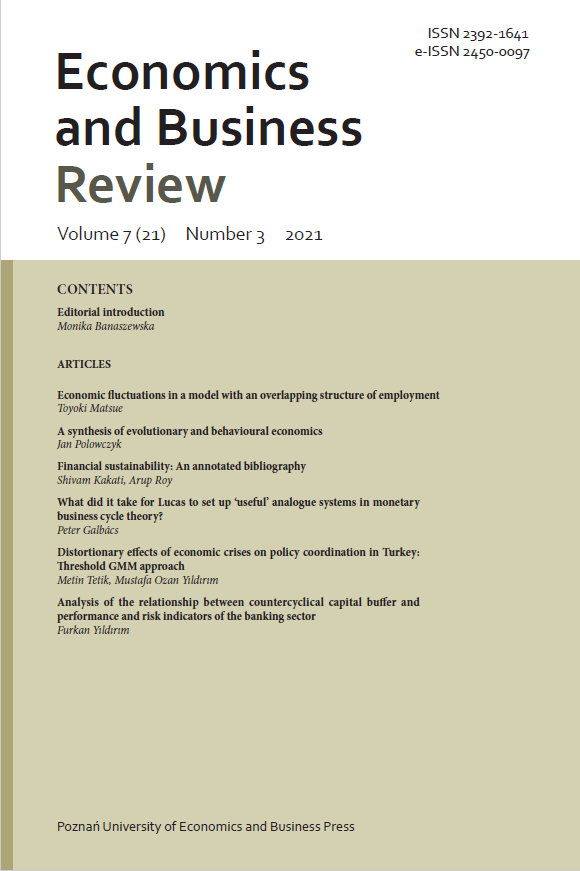WHAT DID IT TAKE FOR LUCAS TO SET UP ‘USEFUL’ ANALOGUE SYSTEMS IN MONETARY BUSINESS CYCLE THEORY?
WHAT DID IT TAKE FOR LUCAS TO SET UP ‘USEFUL’ ANALOGUE SYSTEMS IN MONETARY BUSINESS CYCLE THEORY?
Author(s): Peter GalbácsSubject(s): Economy
Published by: Wydawnictwo Uniwersytetu Ekonomicznego w Poznaniu
Keywords: microfoundations; neoclassical choice-theory; business cycle theory; rational expectations; island models; Robert E. Lucas
Summary/Abstract: This paper provides a look into what Lucas meant by the term ‘analogue systems’ and how he conceived making them useful. It is argued that any model with remarkable predictive success can be regarded as an analogue system, the term is thus neutral in terms of usefulness. To be useful Lucas supposed models to meet further requirements. These prerequisites are introduced in two steps in the paper. First, some properties of ‘useless’ Keynesian macroeconometric models come to the fore as contrasting cases. Second, it is argued that Lucas suggested two assumptions as the keys to usefulness for he conceived them as referring to genuine components of social reality and hence as true propositions. One is money as a causal instrument and the other is the choice-theoretic framework to describe the causal mechanisms underlying large-scale fluctuations. Extensive quotes from Lucas’s unpublished materials underpin the claims.
Journal: Economics and Business Review
- Issue Year: 7/2021
- Issue No: 3
- Page Range: 61-82
- Page Count: 21
- Language: English

